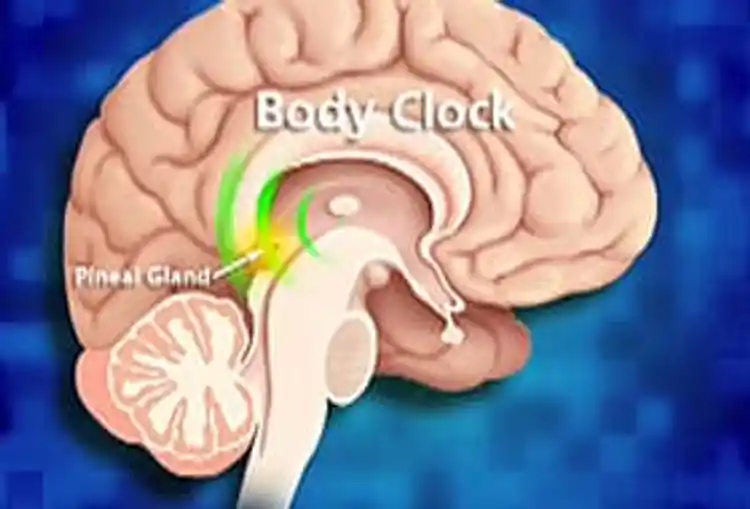Blind Sleep Disorders

Hide Video Transcript
Video Transcript
Narrator
Blind since birth, Patrick Mulvey relies on his sense of hearing and touch to play his sax. While it doesn't affect his music, his inability to sense light does throw his sleep/wake cycle out of harmony with the rest of the world: Partrick Mulvey, Sleep Study Subject
When it's time to go to sleep at 12 o'clock in the afternoon, least that's where my body's running, it thinks its maybe night time. Narrator
Human eyes normally take in a bright light, such as the morning sun, in order for the body clock to sync with night with day. For those with no sensation of light at all, like Judy Schneider, body clocks tend to drift. The resulting erratic sleep patterns and waking fatigue can be devastating… Judy Schneider, Sleep Study Subject
I don't really know what's it like to have a lot of energy. Al Lewy, MD, PhD, Dir., Sleep Disorders Lab, Oregon Health & Science University
The circadian rhythm problem in the totally blind who have no light perception is their second worse burden next to not being able to see. Narrator
Research pioneer Al Lewy says that after light the second most important time cue in the body is the hormone melatonin. This revelation led Lewy to test whether melatonin produced in a lab could be used to manipulate sleep cycles in the blind. Al Lewy, MD, PhD, Dir., Sleep Disorders Lab, Oregon Health & Science University
The body clock is a self-sustaining clock that doesn't require the light dark cycle to operate. And it tells the pineal gland to make melatonin for 12 hours and then it tells the pineal gland to stop making melatonin for 12 hours. Narrator
Both Judy and Patrick are participating in Lewy's sleep study at Oregon's Health and Science University. The amount of melatonin they produce naturally is measured by either saliva or blood. Charted over a period of weeks the levels can reveal how a person's rhythms ebb and flow. Al Lewy, MD, PhD, Dir., Sleep Disorders Lab, Oregon Health & Science University
It's a very clearly demarcated event where the melatonin levels shoot up like a rocket and tell us what the body clock time is in that individual. Narrator
The hope is to develop a safe and effective means of helping those without sight get a good night's sleep. For those with no other option, that possibility is music to their ears… For WebMD, I'm Damon Meharg. 